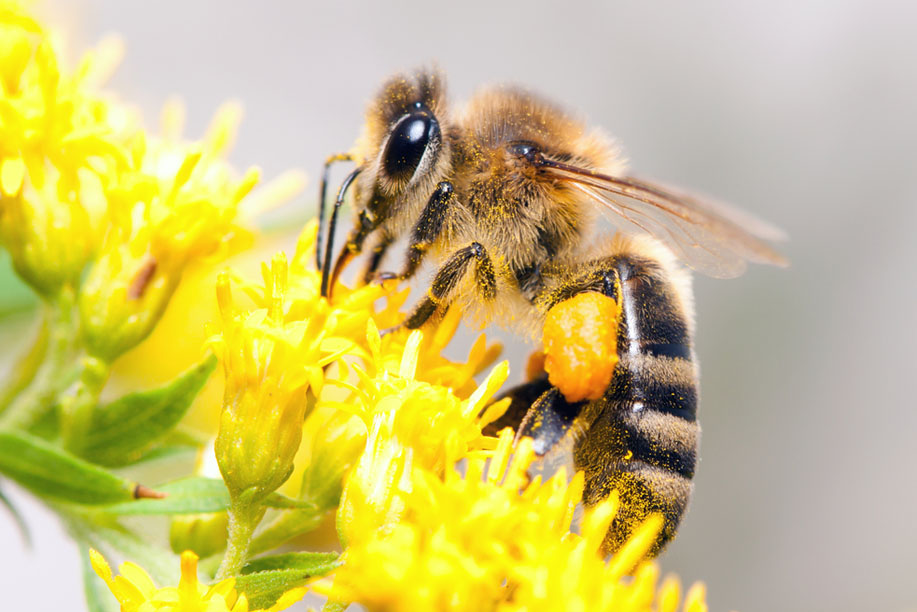You may have heard that eating honey from your local area can help eliminate or lessen the effects of seasonal allergies.
The idea is that regularly consuming small doses of the plant pollens that you are allergic to will build up your body’s tolerance to them.
Here’s a summary of the medical community’s position, written by Dr. Daniel More and reviewed by the Medical Review Board of About.com.
It is a popular notion that eating honey is a natural remedy for symptoms of allergies and asthma. Honey contains various ingredients, including pollen allergens and components of honey bees. In fact, bee pollen—available without a prescription and at most health food stores—is also commonly marketed as a natural allergy remedy and an anti-inflammatory agent. Other names for commercially available bee pollen include royal jelly or propolis.
Locally produced honey, which supposedly contains local plant pollens to which a person would be allergic, is the preferred type of honey for allergies. It makes sense that consuming honey that contains pollen to which a person is allergic would improve allergies, much like how sublingual immunotherapy works. And, the fact that many people have experienced anaphylaxis from eating honey means that there may be enough pollen to stimulate the immune system.
However, to prove that a therapy works, it must be compared to placebo. There is only one well-designed study comparing two different types of honey (locally produced and nationally produced) against placebo in people with pollen allergy. Unfortunately, there was no difference in allergy symptoms among the three groups of study participants. It was interesting, however, that nearly 1 in 3 of the volunteers dropped out of the study because they couldn’t tolerate eating one tablespoon of honey every day due to the overly sweet taste. More studies are needed to further investigate the possible benefits of honey for the treatment of allergies.
So, while consuming local honey for your allergies may sound like a good idea, and many would even argue that it can’t hurt, no well-designed study that I’m aware of shows that it actually does work. In fact, some very sensitive people could experience life-threatening allergic reactions as a result of eating locally produced honey due to the pollen and venom protein content. I don’t doubt that some people actually do get benefit for their allergies as a result of eating honey, but for most people, this is probably no more than a placebo effect.
More information about this topic can also be found here, on the website of the American College of Allergy, Asthma & Immunology.

